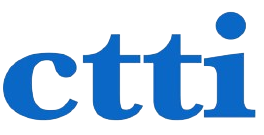Course Overview
The “Certificate in Java Programming” is a comprehensive three-month program designed to provide learners with a solid foundation in Java programming. This course covers essential topics, from basic syntax and object-oriented programming to advanced concepts such as exception handling, file I/O, and basic data structures.
Participants will gain the skills needed to develop and maintain Java applications through a combination of interactive lectures, hands-on exercises, and real-world projects.
Course Structure
Duration: 3 months
Sessions per week: 3
Hours per session: 2
Total hours: 72
Module 1: Introduction to Java Programming (10 hours)
Session 1: Overview of Java Programming
History and features of Java
Setting up the development environment (JDK, IDE)
Writing and running a simple Java program
Session 2: Java Syntax and Basics
Data types, variables, and operators
Control flow statements (if-else, switch)
Session 3: Loops and Iteration
For, while, and do-while loops
Using loops in Java programs
Session 4: Methods and Functions
Defining and calling methods
Method parameters and return types
Session 5: Hands-On Exercises and Mini-Project
Basic Java program development
Practical exercises to reinforce learning
Module 2: Object-Oriented Programming (OOP) in Java (14 hours)
Session 6: Introduction to OOP Concepts
Principles of OOP: Encapsulation, Inheritance, Polymorphism, Abstraction
Creating and using classes and objects
Session 7: Encapsulation and Constructors
Using access modifiers
Defining and using constructors
Session 8: Inheritance and Polymorphism
Extending classes and method overriding
Understanding polymorphism in Java
Session 9: Interfaces and Abstract Classes
Defining and implementing interfaces
Using abstract classes
Session 10: Practical Exercises with OOP Concepts
Developing Java programs using OOP principles
Real-world examples and mini-projects
Module 3: Advanced Java Concepts (14 hours)
Session 11: Exception Handling
Understanding exceptions
Using try-catch blocks and creating custom exceptions
Session 12: File I/O and Serialization
Reading from and writing to files
Using serialisation for object persistence
Session 13: Collections Framework
Introduction to Java Collections (List, Set, Map)
Using collections for data storage and manipulation
Session 14: Generics and Lambda Expressions
Understanding generics in Java
Using lambda expressions for functional programming
Session 15: Hands-On Project: Developing a Java Application
Applying advanced Java concepts to build a complete application
Debugging and testing the application
Module 4: Data Structures and Algorithms (14 hours)
Session 16: Introduction to Data Structures
Understanding arrays, linked lists, stacks, and queues
Implementing basic data structures in Java
Session 17: Sorting and Searching Algorithms
Common sorting algorithms (bubble sort, merge sort, quick sort)
Searching algorithms (linear search, binary search)
Session 18: Recursion and Backtracking
Understanding recursion in Java
Implementing backtracking algorithms
Session 19: Graphs and Trees
Introduction to graphs and trees
Implementing graph and tree traversal algorithms
Session 20: Hands-On Project: Implementing Data Structures and Algorithms
Developing Java programs with data structures and algorithms
Practical exercises and mini-projects
Module 5: Final Project and Review (14 hours)
Session 21: Project Planning and Design
Selecting a project topic
Planning and designing the project
Session 22: Project Development
Implementing the project
Integrating various Java concepts
Session 23: Project Development (continued)
Debugging and testing the project
Preparing for presentation
Session 24: Project Presentation and Review
Presenting the project to peers and instructors
Receiving feedback and making improvements
Session 25: Review and Next Steps
Reviewing key concepts and course highlights
Discussing advanced topics and further learning paths
Conclusion
The “Certificate in Java Programming” program provides a comprehensive and in-depth understanding of Java programming principles, tools, and techniques. Through a blend of theoretical knowledge and practical experience, learners will develop the skills needed to create professional-quality Java applications.
By the end of the course, participants will be well-equipped to tackle real-world Java programming challenges and advance their careers in software development.
Join us at CTTI and embark on a transformative journey to mastering Java programming.


Reviews
There are no reviews yet.